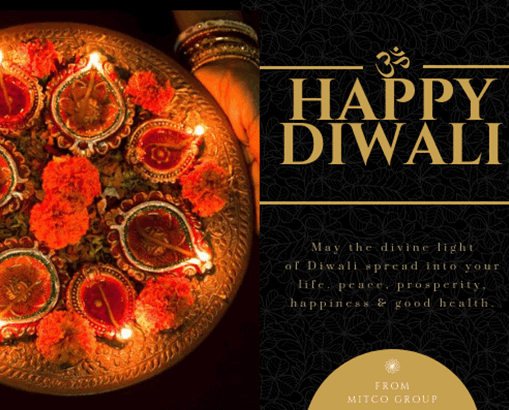Cultural Diversity of Mauritius

Among the plethora of festivals celebrated on the paradise island, Deepavali remains the sweetest and most vibrant one filled with ‘light’. Celebrated on the 7th of November 2018, Hindus all over the island fast for five days preceding the festival and adorn their houses with clay lamps and electric bulbs on the auspicious day.
The festival marks the celebration of the victory of light over darkness or good over evil in remembrance of the return of Lord Rama who returned to his Kingdom after 14 years of exile after defeating Ravana, the King of Lanka. It is believed that the Lord’s path was illuminated with rows of oil lamps in his welcome. Parts of mythology also indicate that the pious day of Deepavali represents the day on which the Goddess of wealth visits the dwellings of devotees.
The courtyards are also decorated with colourful folk designs called Rangoli. The day of ardent devotees start with prayers and the preparation of a variety of delicious sweets which are then shared with family, friends, neighbours and close ones. In short, the festival celebrates the wisdom of positivity, purity and sharing.
The courtyards are also decorated with colourful folk designs called Rangoli. The day of ardent devotees start with prayers and the preparation of a variety of delicious sweets which are then shared with family, friends, neighbours and close ones. In short, the festival celebrates the wisdom of positivity, purity and sharing.
Commemoration of the arrival of indentured labourers to Mauritius
Mauritius has a profound history in which the arrival of indentured labourers is one of the most important towards civilisation on the remote island.
Starting from 1834, Mauritius became a destination for labourers especially from India hence the variety of cultures and religions practiced over the island. On the 2nd November 1834, a Vessel named Atlas brought around 36 labourers mostly from Bihar to work in the Antoinette Sugar Estate run by a British Company hence the significance of the date.
Thereafter, several vessels and labourers were brought to the island to work in sugarcane fields and factories. The practice extended further, and Chinese nationals also flocked to the island and created small businesses.
The UNESCO also declared the main depot ports of the immigrants, the Apravasi Ghat, as a World Heritage Site in 2006. In honour of the brave men and women who worked and contributed to the economy and civilisation of Mauritius, the country has declared the 2nd of November a public holiday.
